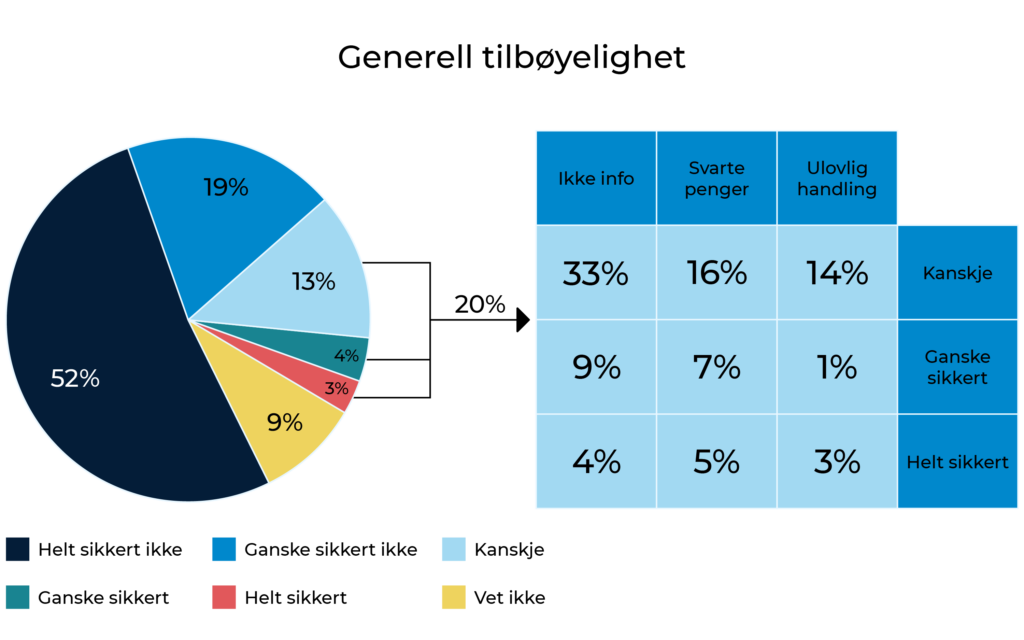Are Norwegians inclined to assist with money laundering?
In collaboration with Opinion, we have conducted a survey to uncover Norwegians' attitudes to money laundering. The project was completed in September 2018, and the survey was carried out by Norstat AS on behalf of the law firm Erling Grimstad.
One in five shows an inclination to assist with money transfers – large variations in the population
The first question in the survey was the following: If you were offered a well-paid assignment from a company that involved transferring money from one person to another or from one company to another, would you accept?
Some findings:
- Only 3% answer an unconditional 'yes' to the question, but a further 4 and 13 percent show inclination
- Around one in ten (9%) answers 'don't know' and thus does not have a clear position
- Men have a somewhat greater inclination than women (26 versus 15 per cent) and people under 40 clearly show a greater inclination to assist with such transfers than those who are older
- The group aged 60+ strongly distance themselves from such activities
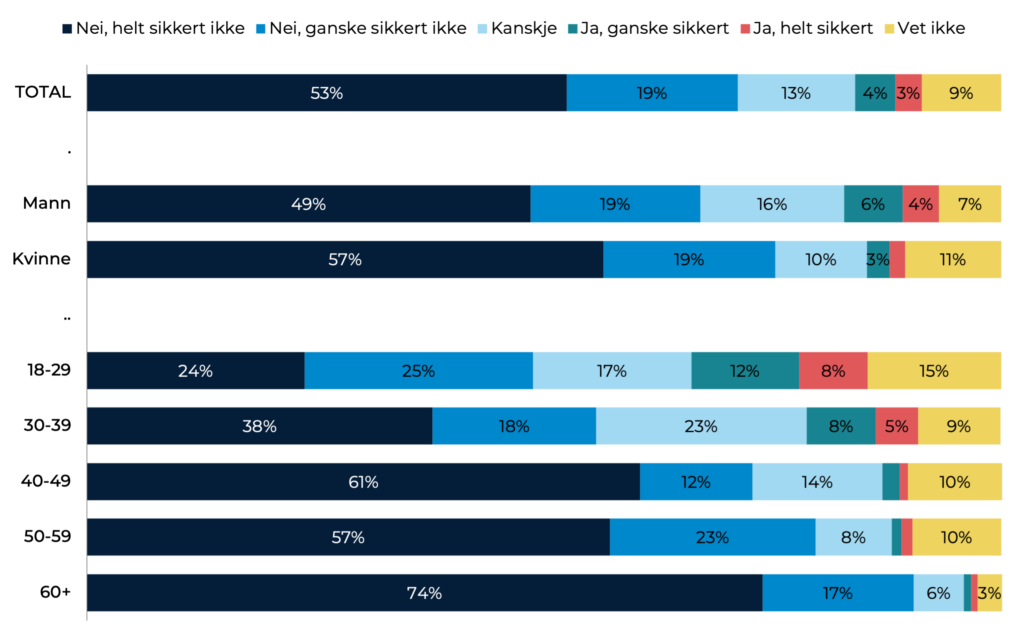
Only the group that answered yes or maybe is followed up with a further three questions shown in subsequent presentations.
Still a great inclination despite the absence of information about the money's origin
Among the participants who answered yes or maybe, there is still a great inclination despite the absence of information about the origin of the money. The participants who answered yes or perhaps were further asked the following question: If you did not get any information about where the money came from, would you accept the assignment?
Some findings:
- Among those who initially indicate an inclination to assist with moving money, there are still many who still show this inclination, even if you do not receive any information about where the money originates
- Here, too, men are more inclined to answer affirmatively than women, while the main difference by age is between those over and under 40, respectively
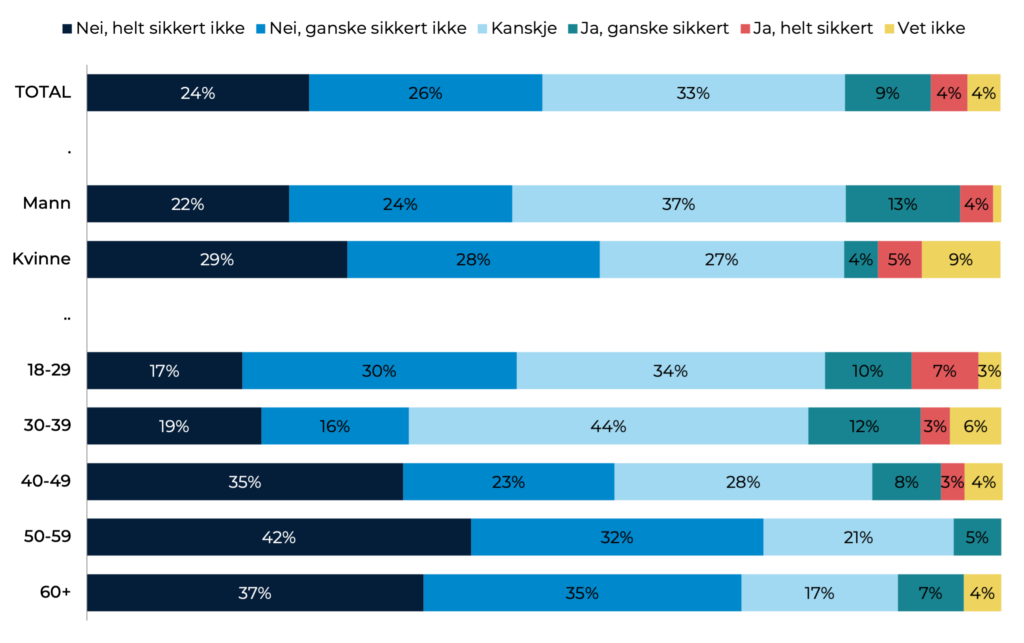
Increasing skepticism regarding information about black money
Furthermore, participants were asked the following questions: If you learned that there could be "black" money you were supposed to transfer, would you accept the assignment?
These were the findings:
- Willingness decreases markedly if you receive information that it is black money
- Half of those who were initially not opposed to money transfers answered a clear 'no' when they learned that it was black money that was to be transferred
- There is still a difference between men and women and the various age groups, but the gap is smaller here
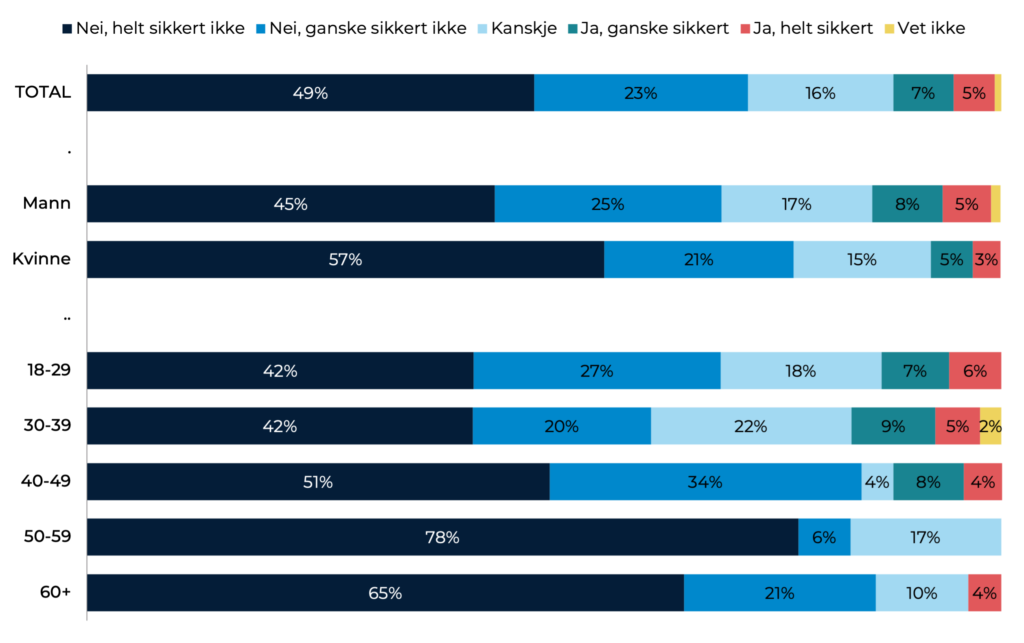
Greatest skepticism regarding information about profits from illegal actions
The last question the participants were asked was the following: If you learned that the money you were to transfer was the proceeds of illegal activities, would you accept the assignment?
Some findings:
- If you receive information that it is not only black money, but that it originates from illegal actions, close to 2 out of 3 who were initially inclined answer a clear 'no'
- There is still a difference between men and women (at least skepticism in men)
- Even so, there are 18% who still show an inclination, among men the proportion is 21%, and in the 30-39 age group the proportion is as much as 25%
- However, the bases in the subgroups are small, and the results must therefore be interpreted with some caution
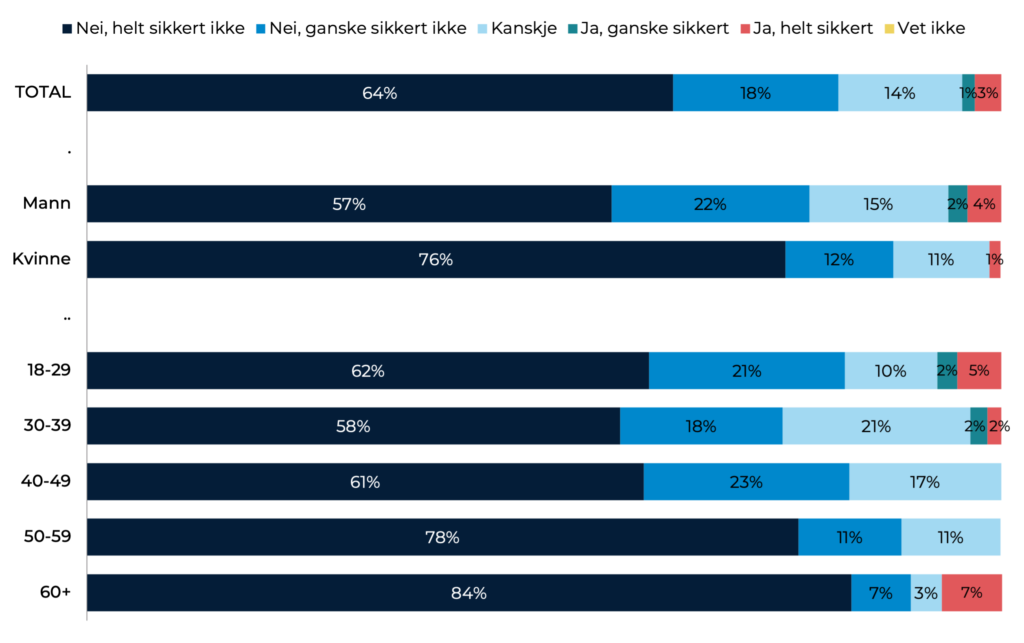
Summary: One in five shows a tendency to be a 'mule'
One in five shows a tendency to be a 'mule' - and 18% of these (approx. 4% of the entire population) also show a tendency when informed that the money originates from illegal activities.
